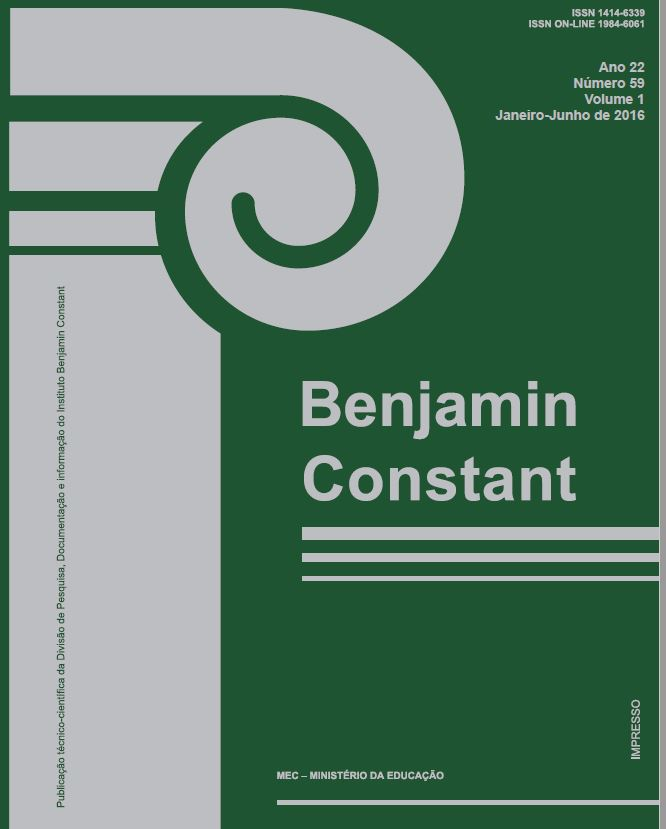The make-believe play and its influence in the literacy process of blind children
Abstract
The article presents considerations of the historical-cultural approach basically settled in Vygotsky about the
development of make-believe play and its possible penetrations in the literacy development process of blind
children. We assume the importance of playing make-believe in the development of psychological functions
of the blind child. Since then, the text discusses peculiarities of psychic development of the blind child as well
as the make-believe play and its implications for the acquisition of literacy and then the text goes to
considerations about the make-believe play of blind children in their literacy acquisition process. We conclude that the blind child’s literacy process is potentiated in the make-believe plays, given the required operations on them, which lead to the development of the symbolic function, this one essential for the reading and writing learning. It is observed also little investment in the make-believe play as much in teaching practices with the blind child as in studies and researches about the peculiarities of the make-believe play and its influence on the process of literacy of this child.





.png)
